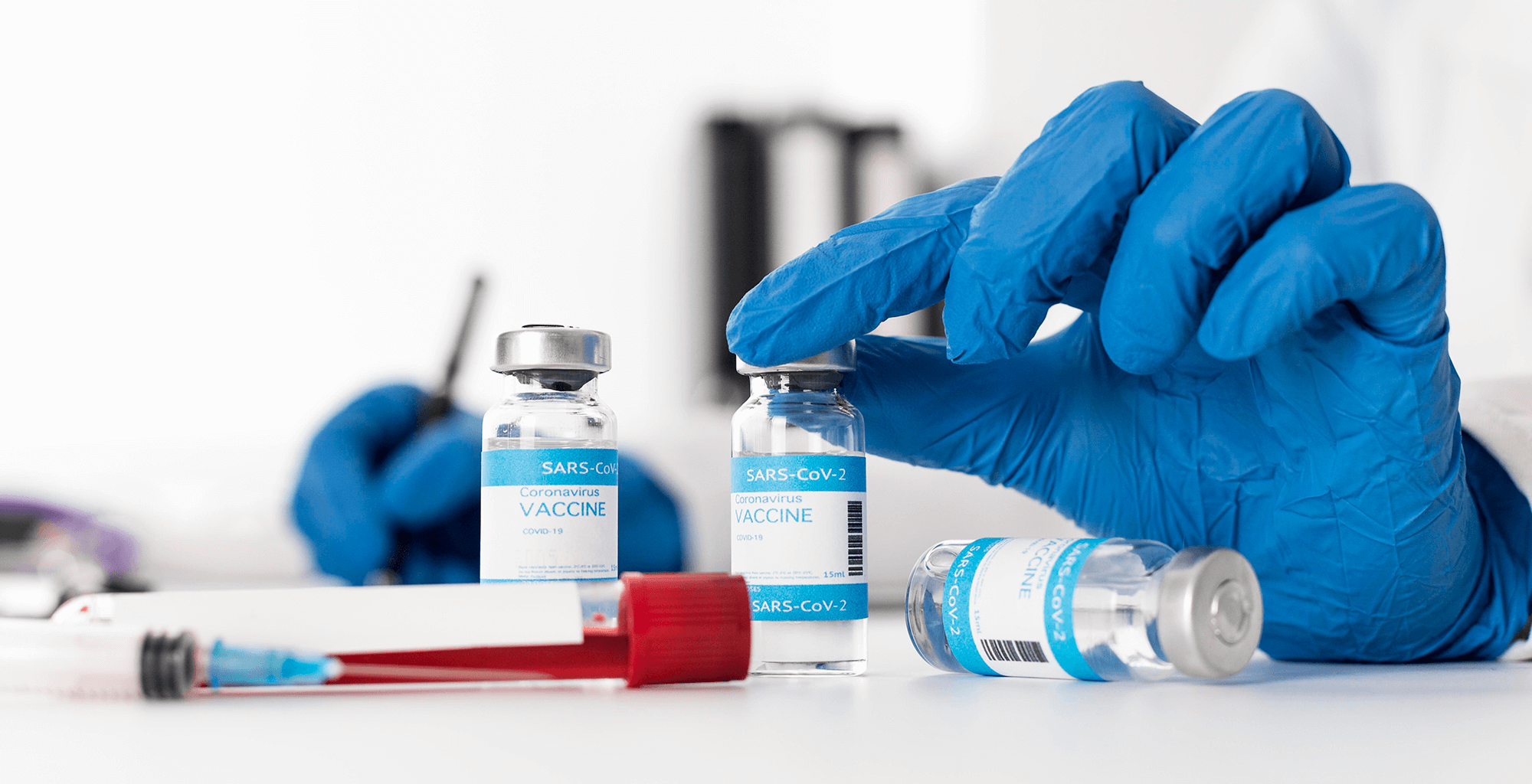After almost 10 months of uncertainty, the first vaccines against Covid-19 were recently authorized by the EU, paving the way for what may signify the beginning of the end for the coronavirus pandemic. diaNEOsis launched a nationwide survey throughout Greece to capture the country's response.
Last spring, at the beginning of the health crisis, diaNEOsis rolled out a series of opinion polls to document public perceptions and views on the most severe crisis in our recent history. Back in April 2020, as our poll showed, Greeks felt worried but uncharacteristically optimistic. Our country attracted media attention for the way it handled the first wave, which swept other European and developed countries. Yet, since the summer, the “second wave” has proven vicious. We repeated the poll in September 2020, at a time when there was no enforced lockdown but the incremental change in the number of cases was alarming. Optimism had subsided. Expectations for the long-awaited “return to everyday life” had been crushed by realism.
Writing this in December 2020, two fundamental things have changed: First, the country entered a second lockdown, following the rising number of cases, ICU admissions and deaths. Second, major pharmaceutical companies began announcing the results of the third phase of their vaccine trials in early November. Today, as the beginning of the vaccination process in Europe indicates a possible way out of the crisis, a whole new picture is emerging. To this end, in collaboration with the polling company Metron Analysis, we conducted a third survey in the period 1-10 December 2020 (PDF link—in Greek), on a nationwide sample of 1,100 people, to capture the attitudes and views of Greeks at this critical time.
We prepared the questionnaire in collaboration with the members of the National Vaccination Committee and the Ministry of Health. Together, we decided to repeat this survey at regular intervals over the next few months, to record the trends on the subject of vaccination and the views of citizens about the pandemic in general. We will keep all responsible authorities and policymakers informed. Of course, as with all our research, this effort is funded and conducted exclusively by diaNEOsis. The results will always by publicly available to anyone at dianeosis.org (in Greek).
Here are some key takeaways:
In mid-September 2020, 42% of Greeks said they did not intend to get the coronavirus vaccine when it is approved by the relevant authorities and available for free (sum of "definitely not" and "probably not" options to the related question). It was a large number, which was widely discussed in Greek media and raised reasonable concerns among experts. Less than three months later, this number has dropped to 27.4%. Today, two out of three Greeks (66.3%) say they will get the vaccine (sum of "definitely" and "probably").
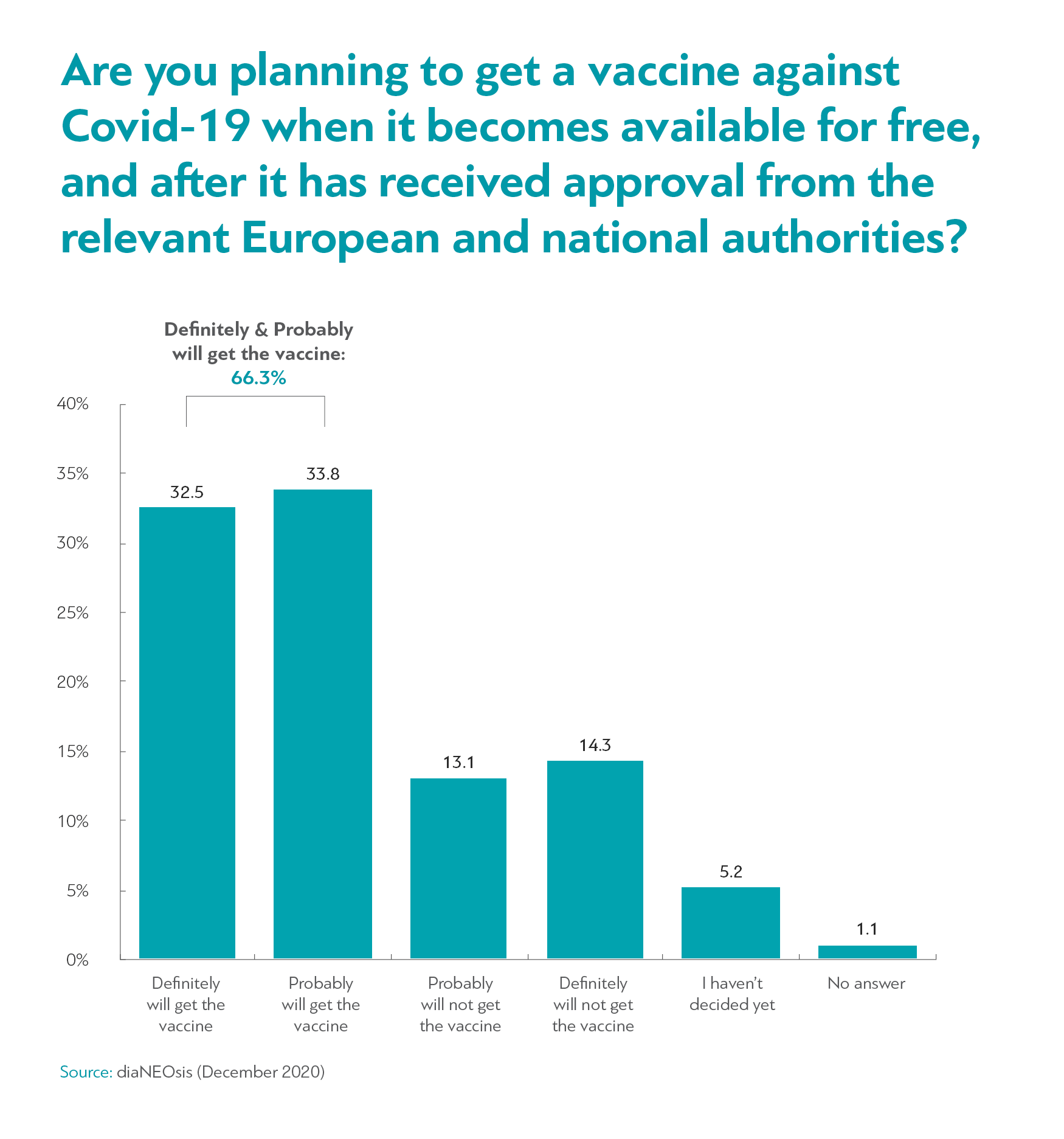
Different demographic groups have different opinions, of course. The intention to get vaccinated is higher among the most affluent, as well as those with pre-existing condition. A significant factor is age: in those over 65, the share who intend to get the vaccine is 80.4%.
What explains this considerable shift? On the one hand, this survey took place at a time when daily cases ranged in the thousands, about 600 patients were treated in ICUs and daily death counts were in the triple digits. The health risk was much more pronounced and palpable. Most importantly, however, in early November, major pharmaceutical companies announced that the vaccines they were developing had completed the third phase of testing on tens of thousands of volunteers, with far better results than expected.
This opinion shift does not appear only in Greece. In the US, according to a rolling survey conducted by the Kaiser Family Foundation, the percentage of respondents who say they will get the vaccine rose from 63% in September to 72% in December. The share of those who say they ("definitely" or "probably") will refuse to be vaccinated sits at 27%.
What was hopeful from the results in September, and seems to be confirmed now, is that there does not seem to be a strong anti-vaccine movement in Greece. The vast majority of Greeks have very positive views about vaccines in general. To the question "do you agree or disagree with the view that vaccines save lives" over 94% of respondents agree.
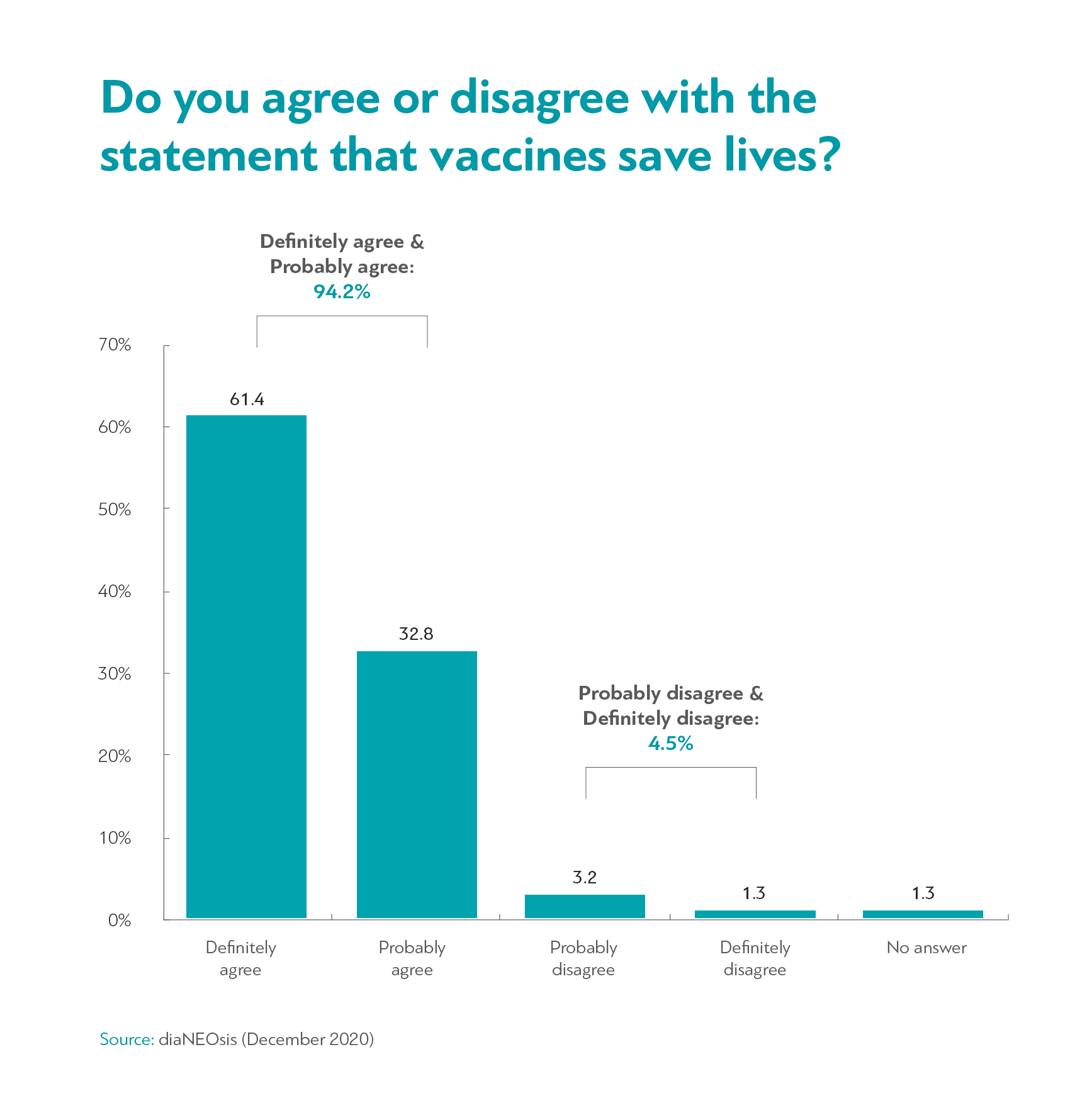
Of the approximately 27% who say they (definitely or probably) will not get the vaccine, by far their most popular reasoning is that "it may not be safe, or it may have side effects". The numbers of citizens who say "there is no virus" or "I do not trust vaccines" are very, very low. As Metron Analysis CEO Stratos Fanaras points out, "there are very few who actually challenge the contribution of vaccines to public health, and the so-called 'anti-vaccination movement' is miniscule. But if public information is not honest, transparent and comprehensible, the movement can feast on ignorance and become a force to be reckoned with."
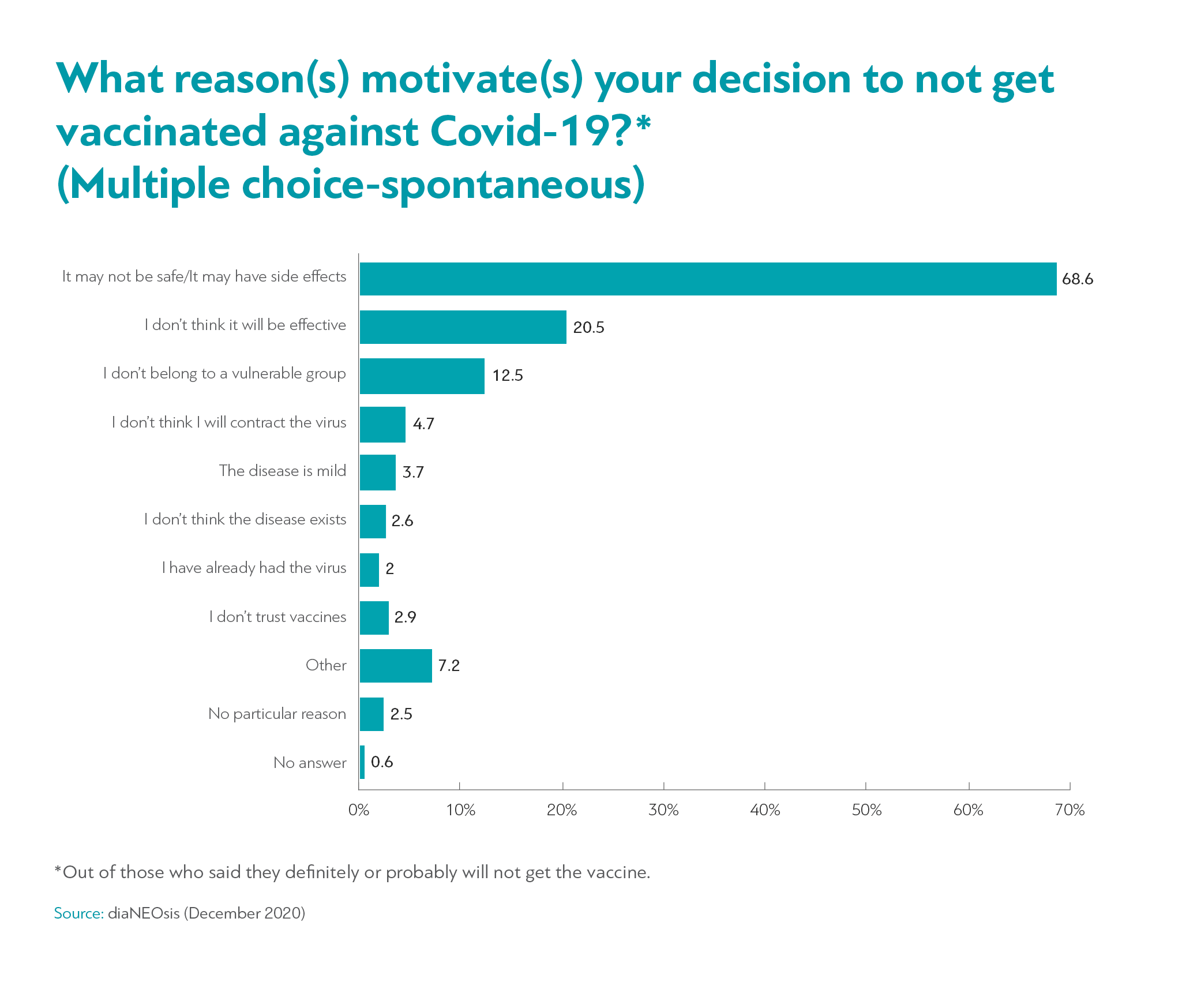
Although many Greeks have already decided to get the vaccine — one in four declares that they would "be among the first" to get it — some still have some reservations: of those who intend to get the vaccine, about half state that they would like to discuss it with their doctors or relatives first.
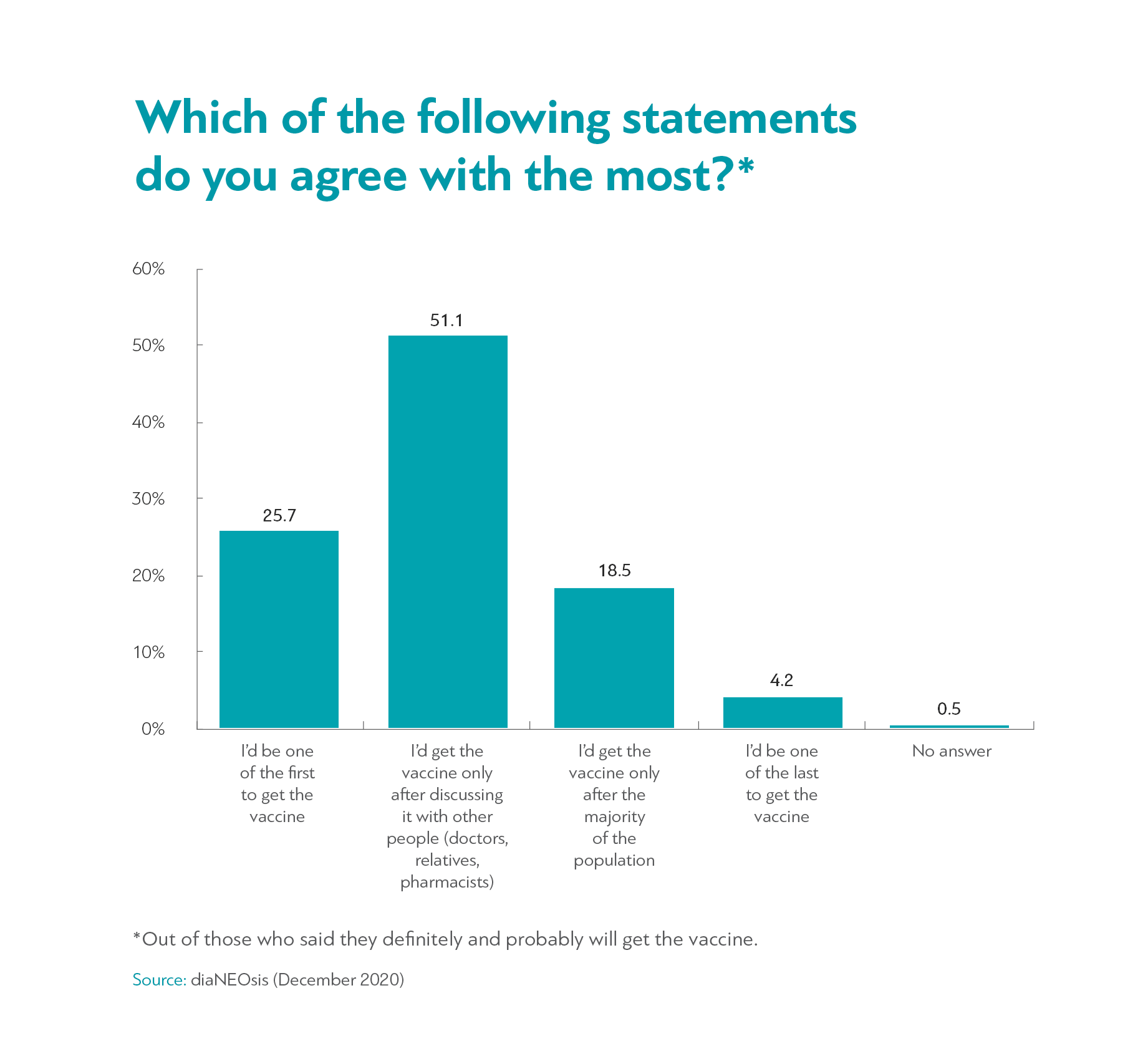
Another thing to note, indicative of the current climate, is that 40.9% of respondents say they have been vaccinated against the flu this year—a much higher percentage than usual. Demand for the flu vaccine has soared, and up to 1 million more doses than last year are expected to be administered this season. 8 out of 10 respondents over the age of 65 say they have already gotten the flu vaccine this year.
As expected, among those who got the flu vaccine this year, 84.1% say they will get the coronavirus vaccine as well.
It is also noteworthy that in early December the majority of citizens estimated that the coronavirus vaccine would be available in our country "in the first quarter of 2021". As it turned out, they were correct.
As far as public life in Greece is concerned, it seems that even after ten months of fear over health and the economy, Greeks still believe that "things are going in the right direction". Although the percentage has dropped significantly from the historic high of 86% last April, it has not changed much since September (54% now versus 57% in September). Τhis attitude is unusual. Metron Analysis has asked this question every month in its surveys since 2014 and, with few exceptions, Greeks traditionally considered that things are not going well. Throughout the pandemic, however, the majority believe that our country is headed in the right direction.
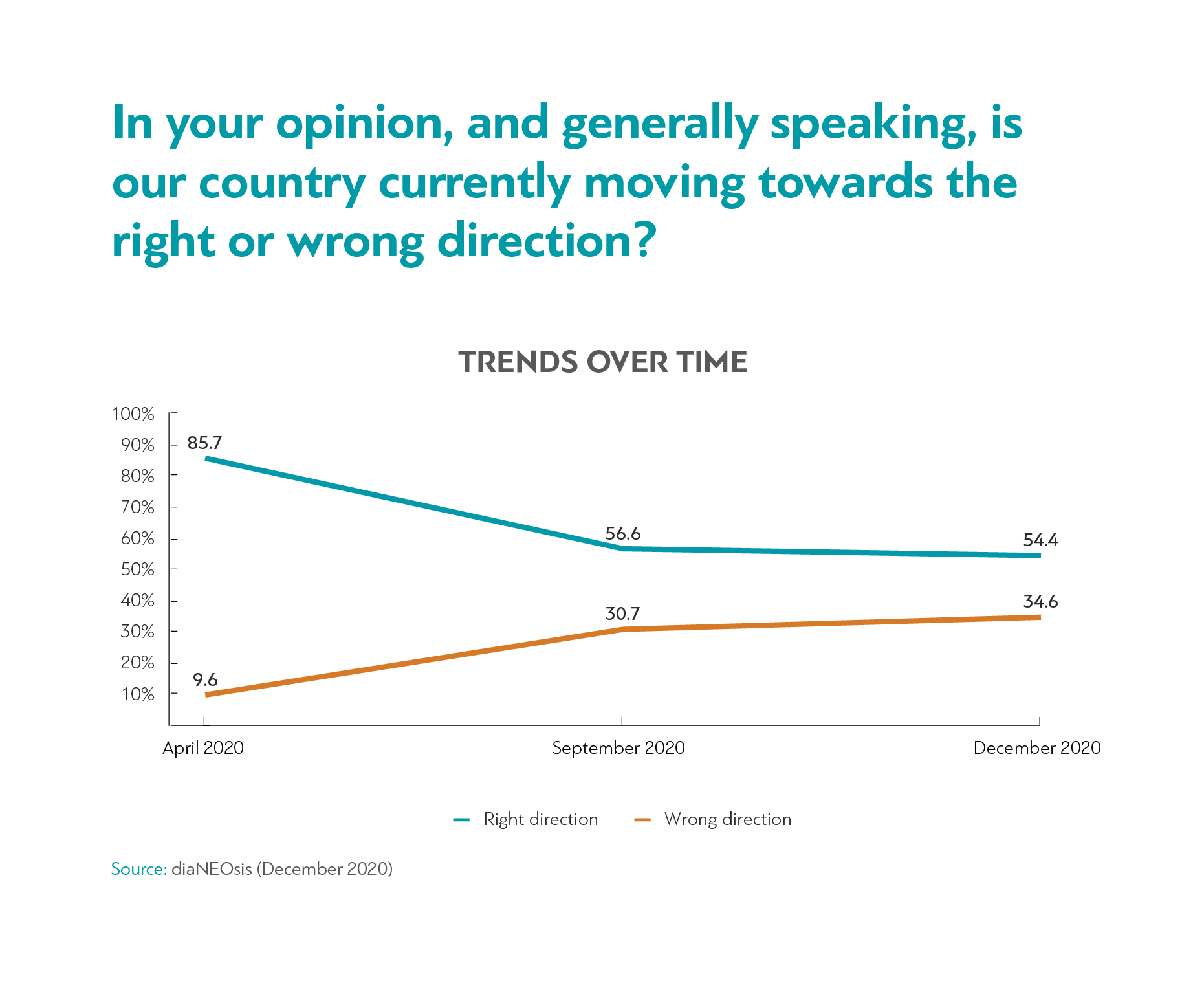
When we asked if, specifically regarding the pandemic, our country is going in the right or the wrong direction, a slightly higher percentage (59%) believe that, indeed, we are doing well.
It is interesting to note that, in both cases, age plays a role in how Greeks respond. The older the age group, the more optimistic the attitude. Only 37.2% of young people aged 17-24 believe that the country is headed in the right direction. In those over 65, however, the percentage is 61.6%. This is a finding that deserves further exploration, as it may reveal a worrying trend in our society.
Still, while the second wave is culminating and the country is on lockdown, 39% of Greeks believe that "the worst part is over", up from 19% last September. The majority, however (47%, down from 73% in September), still believe that "worse days are coming".
Again, this survey confirmed that the pandemic has completely changed the way we live. 65.1% say their lives have changed "a lot" or "very much" — and the percentage reaches 88% if we add "fairly" to the mix (it was 73% in September). All ages, all social classes and all sections of society agree — with the remarkable exception of farmers, almost a quarter of whom say that their life during the pandemic has “not changed at all".
Naturally, Greeks are still afraid of the coronavirus. 54% answer "likely" or "very likely" to the question if they think they are at risk of being infected, and 63% answer "very much" or "fairly" to how much they believe they are at risk of getting the disease, if they are infected. Here, too, the answers are significantly influenced by the age of the respondents.
Also, for the first time since April, the percentage of people who say they have contracted the virus becomes statistically significant. About 2.5% answer "yes" to the relevant question, a ratio corresponding to about 200,000 people in the general population, not too far from the actual number of confirmed cases (over 130,000 at the time of writing).
As for when they expect the pandemic to end and life to go back to normal, the answers reflect a newfound realism. Last April, the majority of Greeks (68%) believed that normal life would have been restored by September. 2020. In September 2020, the answers were very different. That is also true in December. Now, 68% of Greeks believe that we will return to a normal everyday life sometime after the first half of 2021 — and one in three believe that we will return at some point from 2022 onwards.
Today, moreover, almost all Greeks -92%- say they are know about the pandemic. 49% self-report at the high end of the scale, choosing "informed" or "very informed”. The majority get their information on the internet (44%), while television has dropped from 49% in April to 37% today. Television scores lowest in trust among all media and the internet follows suit. Citizens trust their doctors and relatives to a much greater extent for information on the coronavirus.
Finally, it is worth noting two other interesting findings.
First of all, 1 in 3 Greeks reports that they suffer from a diagnosed underlying disease, with hypertension being the most frequent (15.8%), followed by chronic metabolic diseases, such as diabetes (9%) and chronic respiratory diseases, such as asthma (5.8%). As mentioned above, members of this large subgroup show strong support for Covid-19 vaccination (72%).
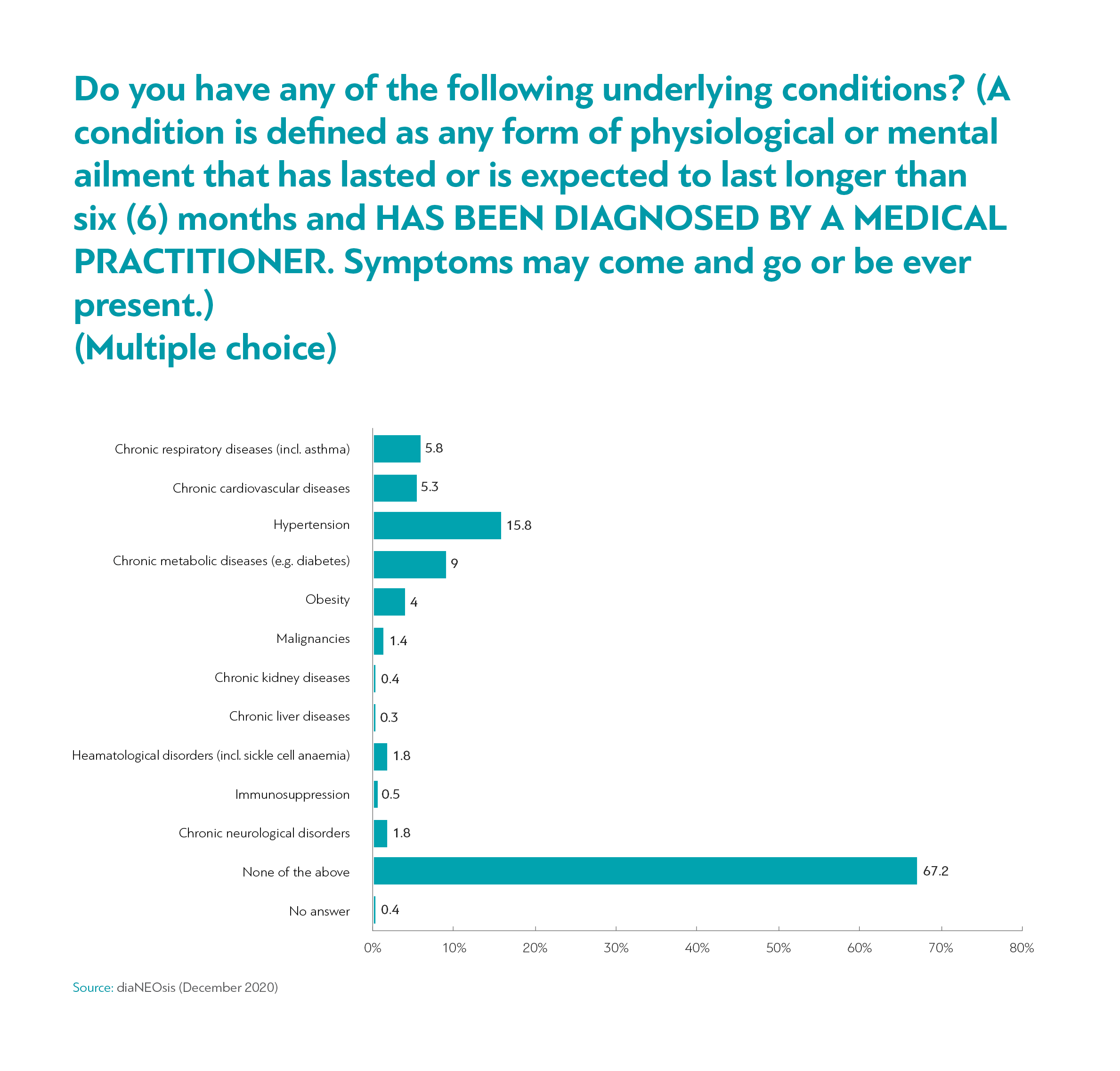
It is also interesting that, while the country is on lockdown, half of all employees continue to work at their workplace (48%). Only about a fifth (20.3%) say that they work part-time. The corresponding percentages in April 2020, during the first quarantine, were quite different. At that time, only 25.4% worked in their workplace, 26.2% worked from home, and almost half of all employees worked part-time, were on leave, or suspended. Now only 1 in 3 employees are in such forms of reduced employment.
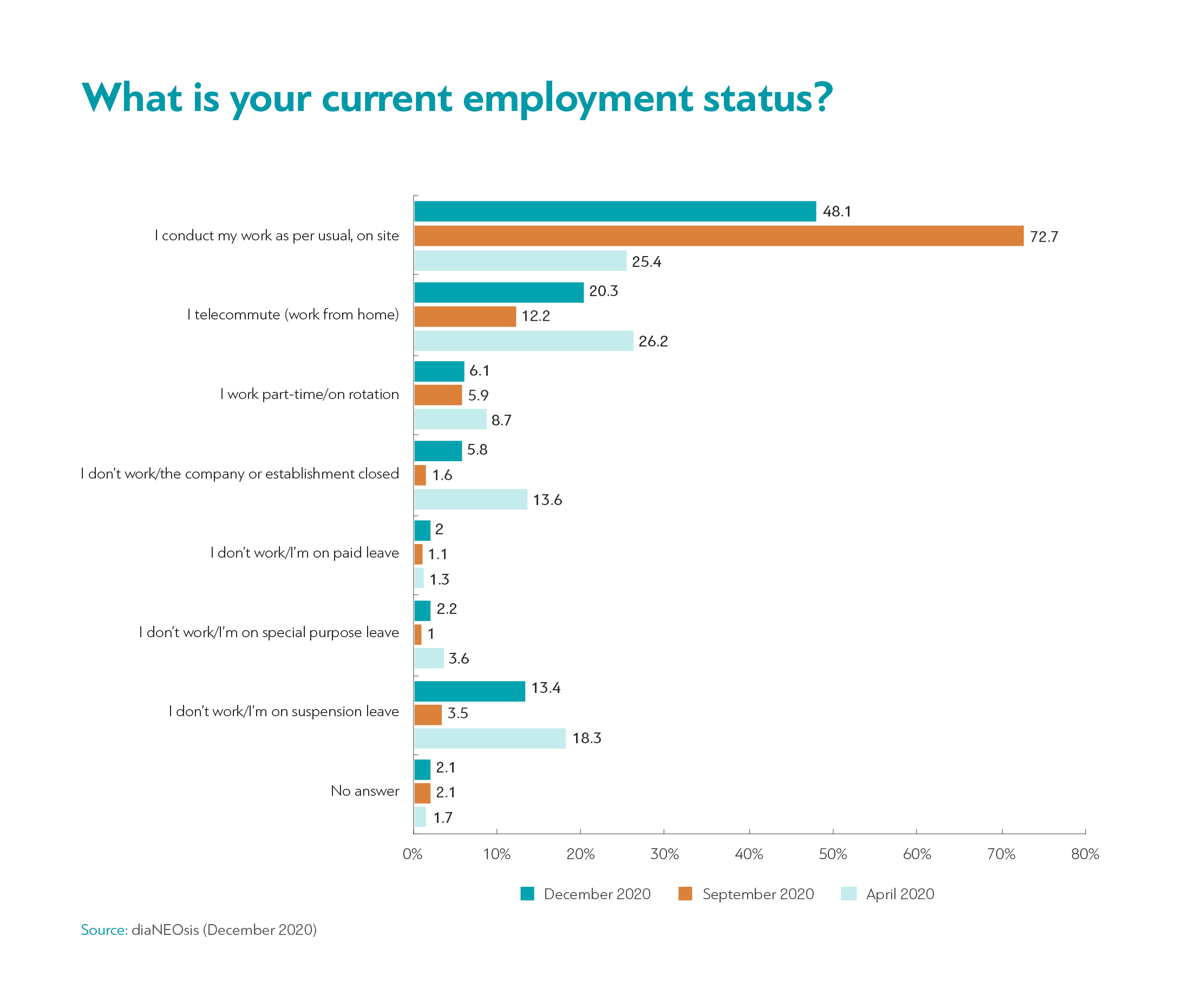
You can read more about how Greeks lived during the first wave in the summary of our poll results in April here.
